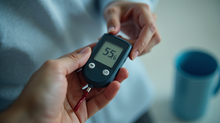Diabetes and Mental Health
- By Maureen Sullivan, RN, CEN, CDE
- Apr 28, 2018
- 2 min read

There has been a growing interest in the area of mental health, with regards to persons with diabetes. Whether it be an underlying mental health condition present at the time of a diabetes diagnosis, or mental health issues surfacing in relationship to a new diagnosis of diabetes, researchers agree we need to dedicate more resources to this unique situation.
A new diagnosis of diabetes can be overwhelming, to say the least. Adopting new lifestyle changes, new dietary changes, and medications to one’s current daily regimen can cause increased anxiety. In addition, medical costs will likely increase, at least in the early stages while getting this chronic disease under control. Support and encouragement from family and friends is important, but may not be available, adding yet another level of stress to an individual. As persons with diabetes will tell you, there never is any “down time” with diabetes- meaning you are constantly thinking about it at some level (possible hypoglycemia during activity, calculating carbohydrates at meal times, and the affordability of a new medical plan of care are a few examples). This new level of anxiety/stress/depression can lead to noncompliance with medical care and further worsen the situation.
On the flip side, a person with a pre-existing mental health diagnosis may have additional medical issues surface, when confronted with yet another medical condition. Comprehension issues (how to take medications; follow through with physician recommendations) and other basic cognition issues may come into focus.
The importance of a full interdisciplinary team approach to persons with diabetes and other co-existing chronic illnesses cannot be overemphasized. Psychologists, as well as medical doctors, dietitians and diabetic educators, should be available to help guide any patient facing a new diagnosis. Psychotherapy, medications, and other treatment options may improve a person’s overall well-being and increase their confidence level. This would allow them the opportunity to self-manage their diabetes successfully.
Open communication between these team members and the patient will also help identify any untoward issues more quickly (such as medication side effects or drug interactions).
Untreated anxiety/depression can lead to poorer blood glucose control, higher healthcare costs, and a lower quality of life. Seeking help early in this healthcare timeline will lead to the best outcomes possible. Diabetes and mental health can both be successfully managed. Seek help, if needed, and take back control of your health and well-being.



































Comments